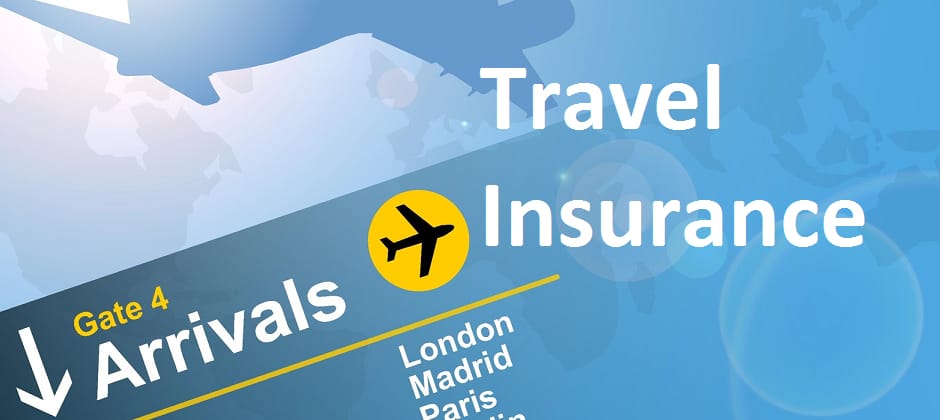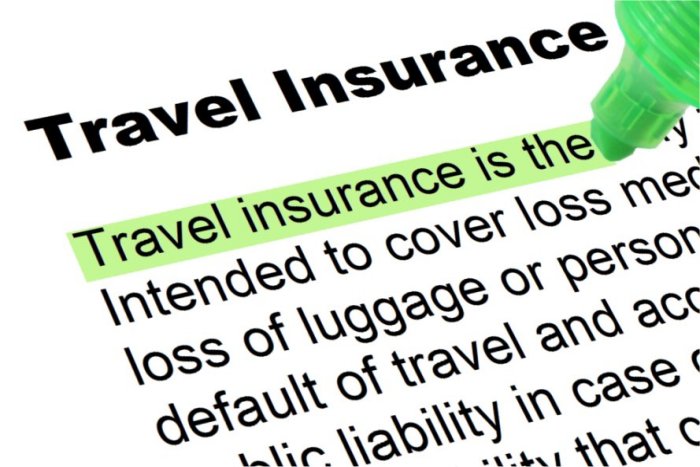Understanding The Basics Of International Travel Insurance
If the global coronavirus pandemic has taught travelers nothing else, it’s that travel isn’t just a privilege, but also an unpredictable pleasure. Countless business and leisure travelers’ plans have been canceled by the coronavirus. A record number of trips have been canceled, due to the global travel restrictions put in place to prevent the spread of the virus.
While it’s fair to say that no event has caused as much worldwide havoc in the airline and hospitality industries as the pandemic, emergencies and minor mishaps have sidelined travelers since the dawn of time. Chances are, you’ve experienced one or more yourself. The travel insurance industry was founded on the frequency of those incidents that disrupt or make travel impossible. Lost luggage, missed connections, a sudden illness—the best travel insurance policies have you covered under each of these circumstances. How well they cover you, of course, depends on the type of travel insurance you decide to purchase and the policy limits you select.
Here Are A Few Things To Know About The Basics Of International Travel Insurance
Cancelation Coverage
Global pandemic aside, there are many reasons why trips are canceled. Travelers sometimes are injured or fall ill, making a scheduled departure impossible. And so do their family members. An earthquake can destroy a destination in a heartbeat. It may take your favorite village in Italy, Greece, or Croatia years to recover from the devastation. Even a more contained disaster, like a fire in the hotel where you’ve made reservations, might throw a monkey wrench into your plans.
Cancellation insurance is designed to protect the investment you’ve made in your trip by reimbursing you for any non-refundable expenses you’ve paid before departure. These may include your airline ticket—how many of us take the risk of buying non-refundable tickets to get a great fare?—and hotel deposits you may have paid. Tickets to a much-anticipated museum exhibition may also fall into this category, as might the fees you paid to a golf course to reserve a tee time. But policy specifics vary, so it’s important to understand the terms of any coverage you’re thinking of buying.
Trip Interruption Coverage
Imagine you’ve already arrived in Paris. You’ve just had a fabulous dinner in Montmartre. You’re walking the neighborhood’s iconic cobblestoned streets wearing the sky-high Christian Laboutin pumps you scored that very afternoon. Perhaps not the best choice of footwear, because, next thing you know, you’ve broken your leg. And perhaps your heart, too, because you know there will be no more walking for you this trip. That’s when trip interruption insurance kicks in. This type of policy will cover the cost of flying home to recuperate as well as any non-refundable money you’re out because your trip has been cut short. Some policies will also cover the cost of returning to Paris once your leg has healed, but these tend to be more expensive.

Cancel for Any Reason Coverage
CAFR coverage is the Lamborghini of cancellation coverage: rare and expensive. It makes sense only for travelers whose schedules are extremely unpredictable and, perhaps, for the very fickle. CAFR coverage typically allows you to cancel your trip with just 48 hours’ notice to your travel insurance company and still recoup your non-refundable expenses. We can certainly imagine situations where this coverage would be useful. You’re at the beck and call of an unreasonable boss, for example, and you’re suddenly called to give a presentation to an important client. You’d rather cancel your trip than incur your boss’s wrath and risk losing your job. Or you’ve had an insurmountable argument with your trip buddy and simply can’t see yourself traveling together anymore. But this type of travel insurance is pretty expensive, so be sure you really need it before signing up for it. Most travelers don’t.
Travel Medical Insurance
Remember that stroll down the streets of Montmartre? Imagine it wasn’t quite so disastrous. You wound up with some nasty cuts and bruises, but your injuries aren’t so grave that you want to cancel your trip. That’s when travel medical insurance would be a great thing to have. The medical insurance you carry in your home country probably doesn’t cover you when you’re traveling abroad. And even a single trip to the emergency room can set you back quite a few Euros. Should you suffer a more serious illness—one that requires hospitalization, surgery, ambulance transport, or diagnostic services—your costs can be much higher.
A single night’s hospital stay for non-EU residents in a European country can cost upwards of 500 EUR. A travel insurance policy for your entire trip will cost you just a fraction of that one-night stay. Note that a few countries offer the same free medical care to foreign visitors that residents receive; Italy included. It’s best to check the healthcare regulations in whatever country you plan on visiting before purchasing travel medical insurance.
Auto Insurance
The same holds true for auto insurance as for health insurance. In most cases, your at-home policy will not cover you if you’re in an accident abroad. Auto insurance is also a relatively inexpensive component of a comprehensive travel policy and can protect you against colossal costs in the event you’re in an accident that involves serious injuries.

Lost, Stolen, And Delayed Baggage
Can you name a single seasoned traveler who hasn’t at one point experienced a luggage mishap? While some losses may not be so tragic—it’s easy to replace your razor or hairspray—having your camera stolen when you’re about visit the world’s most breathtaking sites can rob you of the vivid memories a photo record of your trip provides. You’d want to go out and buy a replacement pronto so as not to miss a single snap, right? Baggage insurance would likely reimburse for the cost of a new camera. But be sure to check the limits of the policy you buy. Some won’t cover the costs of today’s expensive electronics.
Do the Math
On average, a travel insurance policy will cost you between 4% and 10% of your trip budget. Some travelers will view that as a small price to pay for financial protection under a wide range of circumstances. Some companies offer discounts for membership in certain organizations and group travel. If you travel often, you might want to consider an annual policy. They’re often available for a lower cost per trip than single-trip plans.
Does Travel Insurance Cover Pandemics?
So far, the response of the travel insurance industry to the coronavirus has not been satisfactory. Some companies are paying claims for people who have contracted the virus. And airlines have been very reasonable about refunding ticket costs too. But this is a controversial topic. Keep an eye on the news to see how travel insurance companies may adjust their stance in light of a new global health environment.
